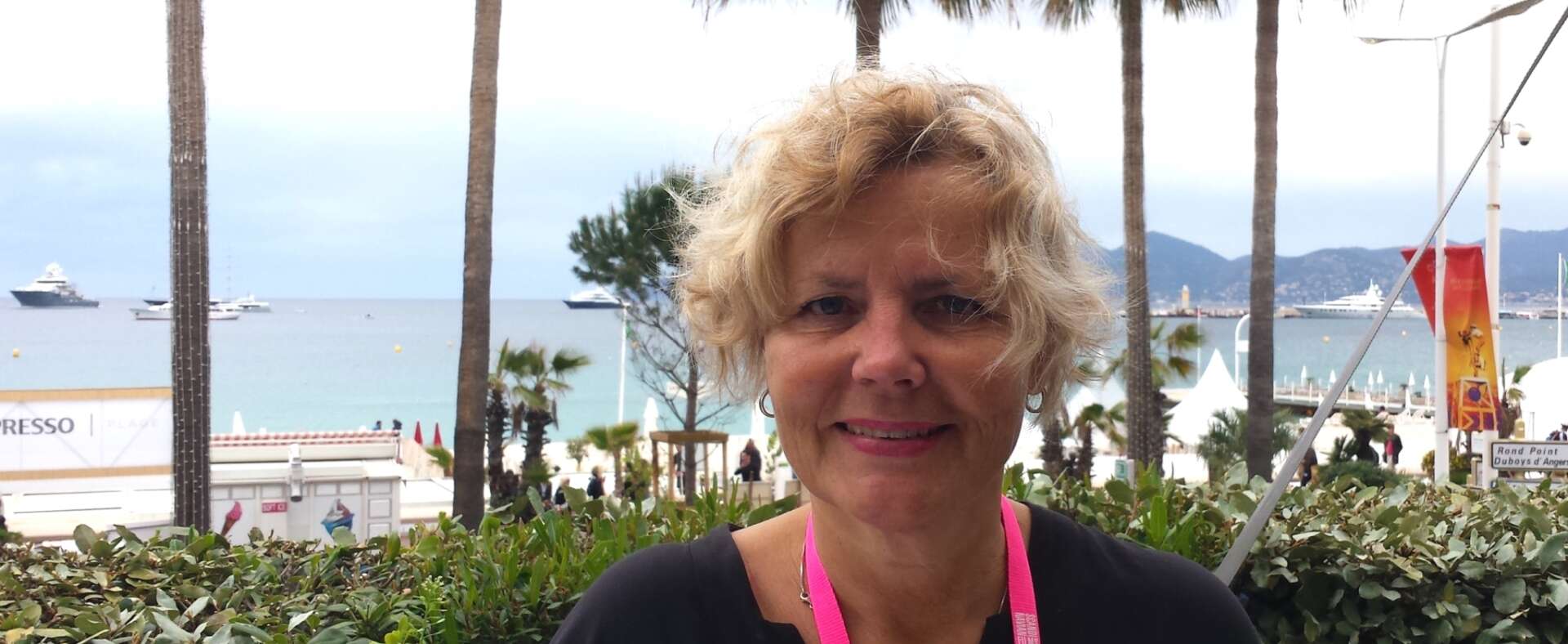WRITTEN BY: Annika Pham
The CEO at the Swedish Film Institute who has led the international charge for gender equality in film since 2012 speaks about her latest initiative and new battles ahead.

The CEO at the Swedish Film Institute who has led the international charge for gender equality in film since 2012 speaks about her latest initiative and new battles ahead.
The SFI has just launched a new scheme to help female writers work on bigger budget films. How did you come up with the idea?
A.S.: Last year in Cannes I told the industry if you don’t shape up we will introduce a quota to help female directors work on big budget films, as these are the films that reach the wider audience. Since then, we’ve had more support, but there is still a lack of female scriptwriters attached to commercially-oriented films.
Our last report - Follow the Money - shows that women write mostly about women and men about men, so there is a gap in the market for female stories. We believe that if women had the possibility to tell stories from their perspective, Swedish films in general would benefit and get a chance to reach a bigger audience. This is why we’ve launched this new scheme, and hopefully the scripts submitted will be good enough to get market support at the second step of support. This is about helping the industry to dare, and see stories in a new way.
See related (SFI eases female writers' access to big budget films) story CLICK HERE.
Concretely when will you launch it?
A.S. At the end of August there will be a deadline for a treatment and out of those treatments a market committee including industry people will judge 10 ideas. These ideas will the possibility to be developed as a script in the first phase. In the second phase, three projects will be selected and they will get SEK 200,000 together, which is a good amount. We have taken inspiration from Norway and Denmark who have done this in the past with great results.
The deadline of 50/50 by 2020 - which is to have to have equal gender representation and female leadership in the Swedish film industry by 2020 - is coming fast. How are you preparing?
A.S.: We launched the idea as early as 2012 and it’s in 2015 that the 50/50 branding was launched. We are very proud that our idea has been adopted by the rest of the world. We all did it! Everyone agrees to find solutions. Festivals are doing it their way to have 50/50 in the jury. They still have some improvements to implement, for instance in making sure that their selection committees do their job on the basis of quality, not friendship or tradition. We need a wind of change.
Do you know how you will launch the 50/50 by 2020 events next year?
A.S. No. I have a lot of meetings coming up. There are a lot of plans around the world; we have to evaluate the results achieved so far and agree on the next steps.
Since you’ve started campaigning, how much change have you seen on the gender issue in Sweden and in the Nordic region?
A.S.: There are many more Swedish films at festivals, with half of them made by women. Twice as many films as in other countries. Then we can see that in the average critics’ charts, there has been an increase in number of films directed by women, and in the top 10 critics chart, there are three films by women. Finally, at the Guldbagge awards, since 2010, 53% of awards for best script, producer, director was given out to women. It’s clear that women are as good as men in telling stories, so there is no reason for the industry not to find those talents and for us not to fund them. In Cannes this year we had Elin Övergaard's Who Talks competing for the Palme d'Or-Best Short Film. Women do travel and enjoy being taken seriously.
On a Nordic level, I must say that Norway has made a serious leap in this area and already sees improvements. Denmark as well is progressing. They’ve always had a few excellent female directors but they are doing better in their overall share of representation across industry sectors.
Another burning issue is climate change and the need for the industry to tackle environmental sustainability. What is the SFI doing in this area?
A.S.: This is not our assignment as an institution. Other financiers have this mandate. But we all need to collaborate. That’s the only way to achieve change. We took the initiative to gather the industry on April 29 at our premises, and we’ve had an interesting dialogue with various film industry representatives. I’m sure we’ll find a common voice on what the Swedish industry should and could do in that area. There is a lot of concern about how the industry is affecting the climate and rightfully so.
Filmi Väst has launched a pilot scheme to introduce tax rebates and attract foreign shoots. What’s happening with the introduction of a tax rebate on a national level?
A.S.: We’re waiting for the government to process this. There has been a shift towards a more positive outlook on this. The Swedish government - no matter the political inclination - has usually been reluctant to address this topic, but there is a greater understand that this needs to be implemented. I hope it will be approved in this fall 2019 budget. If not, we will keep pushing and lobbying!